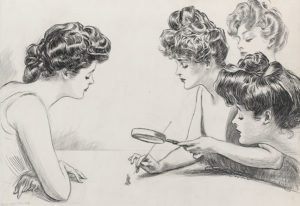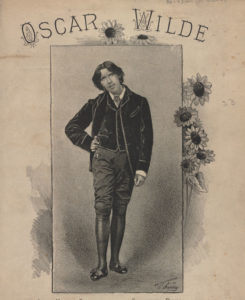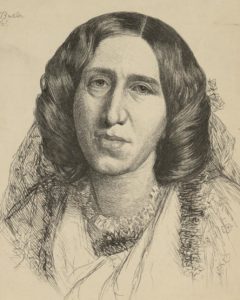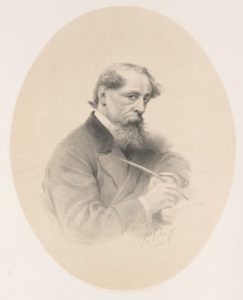We invite 250-word proposals for articles between 800-1,500 words that focus on particular details or overarching patterns within the CLiC corpora. Submissions can be limited to just one author or text or cover a range of nineteenth-century texts. Previous guest posts have covered a wide variety of topics relating to the nineteenth century: from Emma Curry’s post on Charles Dickens’ fascination with wooden legs to Maya Sfeir’s work on eating and drinking in Emily Brontë’s gothic romance and Claire Stoneman’s post on gatekeeping in Dr Jekyll and Mr Hyde.
The CLiC web app — developed as part of the CLiC Dickens project — is a corpus tool that allows you to digitally explore the language of various nineteenth-century texts. CLiC (Corpus Linguistics in Context) lets users search for particular words and phrases, study them in context, see how they are distributed across texts, and compare different texts with one another.
For a comprehensive list of the nineteenth-century texts included in our corpora please click here.
Please see our user-guide for the CLiC Web App which includes information on various CLiC analysis tabs (including concordance searching, keywords, and clusters) as well as our introductory video. There are also a number of blog posts dedicated to using CLiC in the classroom that share really innovative ideas. If you are interested in delving into the CLiC corpora but need more help navigating our app, please get in contact with us. You can also try out our CLiC activity book.
We encourage scholars of all backgrounds and career stages to send us their proposals. And we are always specifically interested in applications for the classroom!

Topics could include but are not limited to:
- The Victorian Gothic (texts include Emily Brontë’s Wuthering Heights and Bram Stoker’s Dracula).
- Sensation Fiction (texts include Wilkie Collins’ Armadale and The Moonstone).
- The Fin De Siècle (texts include and H. G. Wells’ The Time Machine and Kate Chopin’s The Awakening).
- Realism (texts include George Eliot’s various works and Henry James’ The Portrait of a Lady).
- Victorian Science and Medicine (texts include Mary Shelley’s Frankenstein and Charles Kingsley’s The Water Babies).
- The Supernatural (texts include Dickens’ A Christmas Carol and Robert Louis Stevenson’s The Strange Case of Dr Jekyll and Mr Hyde).
- African American Writers c. 1892-1912 (authors include Charles W. Chesnutt and Frances E. W. Harper).
- Children’s Fiction (texts include The Happy Prince by Oscar Wilde, and Anna Sewell’s Black Beauty).
- Fantasy and The Victorian Imagination (texts include Lewis Carroll’s Alice in Wonderland and J. M. Barrie’s Peter Pan).
- Detective Fiction (texts include Arthur Conan Doyle’s The Hound of the Baskervilles).
- The Industrial Revolution (texts include Dicken’s Hard Times and Charlotte Brontë’s Shirley).
- The Victorian Class System (texts include Dicken’s Great Expectations and William Makepeace Thackeray’s Vanity Fair).
- The Marriage Market (texts include the works of Jane Austen and George Eliot).
- The Bildungsroman (texts include Charlotte Brontë’s Jane Eyre and Dickens’ David Copperfield).
- Domestic Economy (texts include the works of Jane Austen).
- Material Culture, Objects and Thing Theory (see, for example, Dickens’ Bleak House).
- Social Injustice (texts include Elizabeth Gaskell’s North and South and Mary Barton.
- Animals (Texts include: The Jungle Book by Rudyard Kipling and the Tales of Beatrix Potter).
- Aestheticism, Decadence and The Dandy (texts include The Picture of Dorian Gray).
- The Fallen Woman (texts include Thomas Hardy’s Tess of the d’Urbervilles).
- Science Fiction (texts include War of the Worlds and The Time Machine by H. G. Wells.)
We are especially seeking articles on the following authors: Jane Austen, Anne Brontë, Anthony Trollope, George Eliot, Wilkie Collins, Arthur Conan Doyle, Oscar Wilde, Elizabeth Gaskell, and Thomas Hardy.
Where possible, please include in your proposal an image that you have permission to share or that is in the public domain. You can browse material in the public domain via Wikimedia Commons.
Please send your proposal to clic@contacts.bham.ac.uk or to Rosalind White at r.white.4@bham.ac.uk by the 30th May 2022. If you’d like to make a more informal enquiry you can direct message @CLiC_Fiction on Twitter.




Join the discussion
0 people are already talking about this, why not let us know what you think?